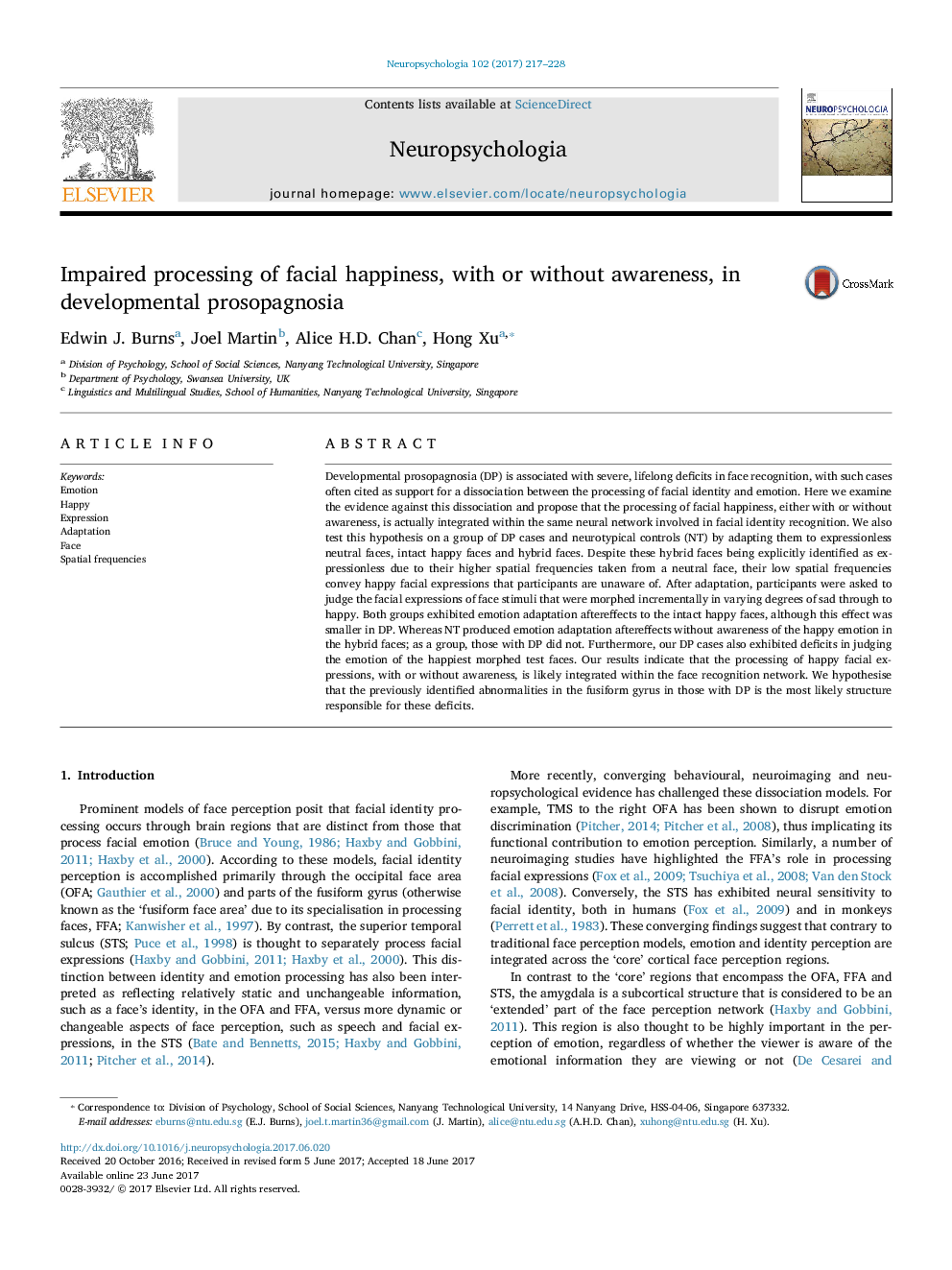ترجمه فارسی عنوان مقاله
ضعف پردازش شادی چهره، با یا بدون آگاهی، در پرتودرمانی پیشرفته
عنوان انگلیسی
Impaired processing of facial happiness, with or without awareness, in developmental prosopagnosia
| کد مقاله | سال انتشار | تعداد صفحات مقاله انگلیسی |
|---|---|---|
| 132929 | 2017 | 12 صفحه PDF |
منبع

Publisher : Elsevier - Science Direct (الزویر - ساینس دایرکت)
Journal : Neuropsychologia, Volume 102, 28 July 2017, Pages 217-228
ترجمه کلمات کلیدی
هیجانی، خوشحال، اصطلاح، انطباق، صورت، فرکانس های فضایی،
کلمات کلیدی انگلیسی
Emotion; Happy; Expression; Adaptation; Face; Spatial frequencies;

